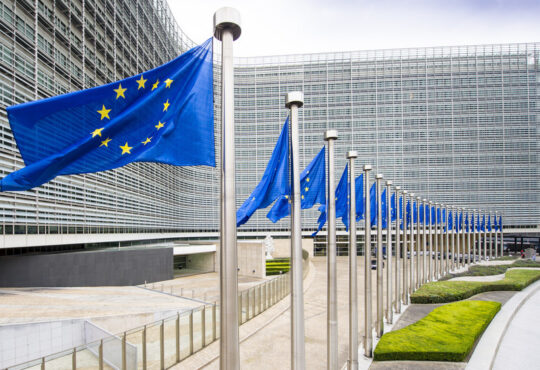
The words “ethical pension” might conjure up alarming mental images of precious retirement savings being poured into turtle-friendly straw manufacturers but ESG investing is more than just avoiding heavy polluters.
In fact, some funds are using their investments in companies to agitate for change, something that has ended in dramatic accusations of ‘corporate wokeness’ in the US. Republican lawmakers took aim at BlackRock, a US asset management giant, with the state of Florida pulling $2 billion in pension funds as the state’s governor Ron De Santis claimed it was “undemocratic of major asset managers to use their power to influence societal outcomes” in response to BlackRock’s support for ESG investment strategies.
Not all of us have the money, time or interest to be full-time activist investors; in fact for most Irish people, their pension represents their only exposure to the market. But that doesn’t exclude the average punter from putting their money where their mouths are or, in this case, their pension pots where their hearts lie.
Quite the opposite, according to Make Your Money Matter, a UK-based initiative cofounded by filmmaker Richard Curtis. The campaign claims that “greening” your pension will cut 21 times more carbon from your footprint than making eco-friendly lifestyle changes like giving up flying and going vegetarian.
Curtis explained that the £2.5 trillion in British pension savings has huge potential swaying power to push companies to commit to sustainability.
“Our pensions have often left us accidental investors in many of the practices we condemn, and the causes we fight against,” he wrote in the Guardian.
“We’ve had huge numbers of people change their pensions, and seen more than £600 billion committed to robust net-zero targets.”
Greenwashing
But is it really as simple as switching your pension to save the world? Not exactly.
ESG investing involves looking beyond purely financial factors when screening companies to buy into by checking out how they manage environmental, social and governance practices. These include how they treat their employees and customers, how they manage waste, do they comply with environmental laws, has the leadership team engaged in improper conduct and how transparent are they with stakeholders?
Recently, some funds promoting themselves as ESG friendly have come under fire for “greenwashing” – the practice of pretending a product is more environmentally friendly than it actually is in order to market it to buyers drawn in by eco-credentials. ESG investing has seen unprecedented demand in recent years and that comes with the risk of unscrupulous operators looking to cash in by wrapping a recycled green bow around the same old assets.

The Australian Securities and Investment Commission began a crackdown in 2022 on superannuation funds and listed companies, with investigations targeting woolly net-zero and carbon neutral claims in particular. And Bloomberg reported funds worth over a hundred billion were downgraded this year after falling foul of new European Union regulations.
The same regulations are now in effect in Ireland with the Central Bank promising its own clampdown earlier this year.
According to Peter Smith, investment director at Aviva Ireland, the regulation can divide “green” funds into two categories.
“It’s easiest to think of Article 8 funds as light green and Article 9 funds as dark green,” he said.
Article 9 funds require more stringent standards when it comes to actually pursuing ESG objectives, but that can also result in higher fees. “Darker green type funds may require more active management because they’re targeting things like UN goals,” Smith said. “They tend to carry higher investment management costs because more analysis is required.”
According to Smith, there is little difference between the fees in Article 8 or “light green” funds and traditional ones.
Ciaran Hughes, a financial adviser at ethical investing specialists Ethico, agrees. “Competition has driven charges down for sustainable funds available to Irish pension savers,” he said.
Investment return
Investing is about getting the most bang out of your buck which can mean profiting from industries like tobacco, mining and weapons manufacturing while financially supporting them. But ethical investing, says Hughes, doesn’t necessarily mean excluding certain companies from your portfolio or hurting your pension pot in the process.
“I would advise people from getting too granular. Often they have a knowledge of what they don’t want to do. For example, they want to stay away from tobacco because a family member died from cancer. But they don’t know what they do want to do,” he said
Through owning shares in a company, people are able to build leverage to influence board decision making, Hughes says. “In a perfect world, you might go and buy all of ExxonMobil but you and I cannot do that. What you can do, via your ESG pension with a sustainability mandate, is to buy a part and have the fund manager use that to engage them on change.”
Smith points to Unilever and BP as examples of shareholders encouraging successful sustainability reform.
“We can say to companies that if we don’t see credible movement towards our asks, we’ll seek to pull out funds in 18-36 months. We try to use our voice to try to encourage change through engaging first and if they don’t engage, we can look at an exclusion policy.”
According to Smith, it’s important not to “ignore the S [social] and G [governance] for the E [environmental]” when it comes to impacts of ESG investing on returns.
“On the social side, research using Glassdoor [a website where employees rate their company] found companies which were winners in certain categories outperformed when it came to returns.”
Research from Bank of America Merrill Lynch in 2019 analysed the performance of companies against their ESG scores over a 10-year period. Analysts found 90 per cent of bankruptcies in the S&P 500 between 2005 and 2015 occurred in companies that had racked up poor environmental and social scores in the previous five years.
The same report claimed companies with better ESG numbers were likely to have better credit scores while scandals involving ESG issues cost US companies $534 billion over a six-year period.
However, 2022, which saw an energy crisis and war in Ukraine, was not kind on ESG funds with the top 10 US funds lagging well behind the S&P 500 index. Peter Smith acknowledged the impact, particularly in the UK.
“A large percentage of the FTSE is energy, mining and tobacco stock. You’re going to get differences in the shorter term between ESG and standard funds focused on a market like the UK market.”
However long term, Ciaran Hughes said investors should not expect their pension to take a “haircut” because of their ethics. “Some years will see traditional funds pull ahead, while other years will see the opposite, but on average, over the long run, we have not seen a difference.”
Getting started
According to Hughes, as a starting point, you’re better off speaking to an independent adviser as Irish pensions can be quite opaque when it comes to just how ethical investments are.
Promised auto-enrolment might also complicate the ability of employees to go the ethical route as they will have a limited choice of funds and, so far, it is unclear if these will include ESG options.
“They may lose the employer contribution if they choose a different fund than the one designated and no one is going to want to do that,” said Hughes.
Companies may also offer different schemes to different parts of the workforce, according to Hughes, so make sure you find out the full availability of schemes other than the default one for auto-enrolment to keep your options open.
Lastly, Hughes advises, people should not to be afraid of voting with their feet.
“Nothing makes fund managers act decisively on sustainability than money moving out of their funds. If we give a sustainability mandate to our money managers, we can expect changes in corporate behaviour.”






